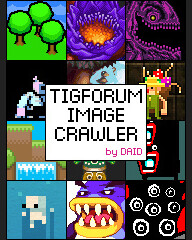Gravitation
By: Derek Yu
On: March 1st, 2008
Jason Rohrer, the creator of the moving and bittersweet Passage, has released a new game, called Gravitation. The basic theme behind Gravitation is “mania, melancholia, and the creative process.” To say any more, of course, could potentially ruin the experience, but I can recommend it highly.
(Thanks, Phil Fish!)
-
Lackey
-
Zing
-
deadeye
-
Squidi
-
mots
-
mainstream man
-
BigBossSNK
-
deadeye
-
Lackey
-
Daniel
-
Al King
-
Derek
-
BigBossSNK
-
Stij
-
Jason Rohrer
-
Seth
-
aeiowu
-
Pnx
-
haowan
-
Patrick
-
deadeye
-
King-n
-
Lob
-
Al King
-
BigBossSNK
-
Al King
-
Paul Eres
-
BigBossSNK
-
Al King
-
Seth
-
BigBossSNK
-
Al King
-
BigBossSNK
-
Sergio
-
Zaphos
-
Zaphos
-
BigBossSNK
-
Zaphos
-
BigBossSNK
-
Zaphos
-
BigBossSNK
-
http://www.ericmcquiggan.com TeamQuiggan
-
BigBossSNK
-
http://www.ericmcquiggan.com TeamQuiggan
-
Zaphos
-
BigBossSNK
-
http://www.ericmcquiggan.com TeamQuiggan
-
Zaphos
-
BigBossSNK
-
http://www.ericmcquiggan.com TeamQuiggan


